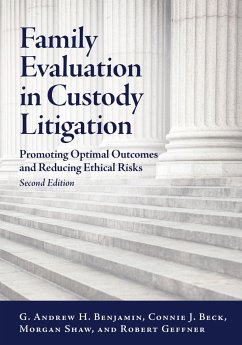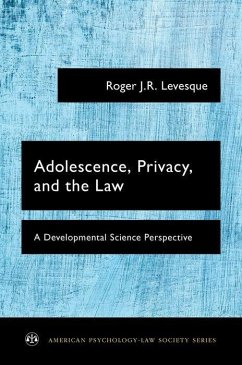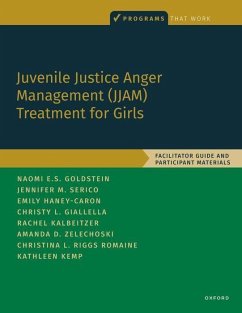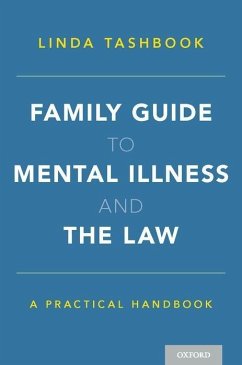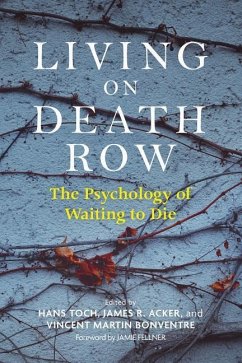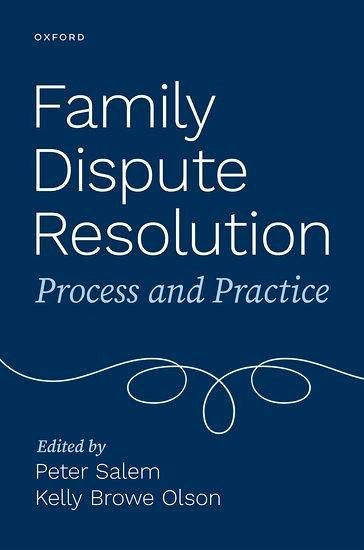
Family Dispute Resolution
Process and Practice
Herausgeber: Salem, Peter; Browe Olson, Kelly
Versandkostenfrei!
Versandfertig in über 4 Wochen
74,99 €
inkl. MwSt.
Weitere Ausgaben:

PAYBACK Punkte
37 °P sammeln!
Family Dispute Resolution brings together some of the field's leading practitioners, researchers, teachers, and policymakers to share their expertise and experience. This overview of family dispute resolution processes and practices is designed to help professionals who assist separating and divorcing parents make decisions about the future of their families. It is essential reading for legal and mental health professionals in the field and law and graduate students who intend to work with separating and divorcing families.




